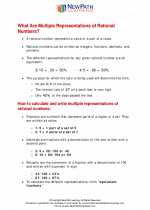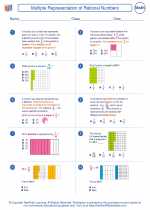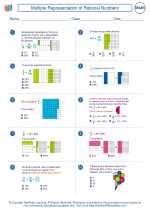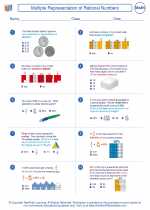Transitive Property
The transitive property is a fundamental concept in mathematics, particularly in the field of algebra. It is used to compare and relate different mathematical expressions or equations.
Definition
The transitive property states that if a = b and b = c, then a = c. In other words, if two quantities are equal to a third quantity, then they are also equal to each other.
Example
For example, if a = 5 and b = 5, and b = c, then by the transitive property, a = c.
Study Guide
When using the transitive property, it's important to keep in mind the following key points:
- Always start with the given equalities or inequalities. For example, if you are given a = b and b = c, you can use the transitive property to conclude that a = c.
- Remember that the transitive property can be applied to both equalities and inequalities. If a < b and b < c, then by the transitive property, a < c.
- Be cautious when applying the transitive property. It is only valid when the intermediate term (b in the example a = b and b = c) is the same in both statements. For example, if a = b and c = d, you cannot directly conclude that a = d using the transitive property.
By understanding and practicing the transitive property, you can simplify equations and inequalities, and make logical conclusions based on given information.
.◂Math Worksheets and Study Guides Sixth Grade. Multiple Representation of Rational Numbers
Study Guide Multiple Representation of Rational Numbers
Multiple Representation of Rational Numbers  Worksheet/Answer key
Worksheet/Answer key Multiple Representation of Rational Numbers
Multiple Representation of Rational Numbers  Worksheet/Answer key
Worksheet/Answer key Multiple Representation of Rational Numbers
Multiple Representation of Rational Numbers  Worksheet/Answer key
Worksheet/Answer key Multiple Representation of Rational Numbers
Multiple Representation of Rational Numbers 

 Worksheet/Answer key
Worksheet/Answer key
 Worksheet/Answer key
Worksheet/Answer key
 Worksheet/Answer key
Worksheet/Answer key

The resources above cover the following skills:
Number and Operations (NCTM)
Understand numbers, ways of representing numbers, relationships among numbers, and number systems.
Work flexibly with fractions, decimals, and percents to solve problems.